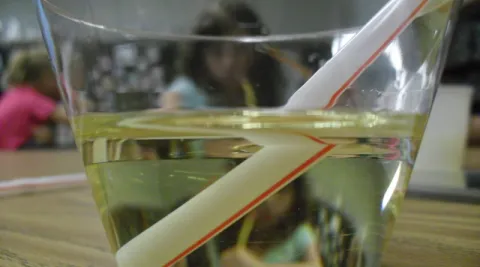Exploring the Unseen
How do you study something that you cannot see directly? What is the difference between inference and observation? Learn how scientists are trying to solve a real-life mystery using indirect evidence.
Curriculum module media

During this unit students gather and use indirect evidence to reason about things too small to see, too remote to reach, and otherwise difficult to detect. Is an empty cup truly empty? How do we know? How do we know that atoms have even smaller subcomponents? Connections are drawn to the Sanford Underground Research Facility's world-leading search for a mysterious substance called dark matter, which has yet to be detected directly. The idea that dark matter exists is based entirely on indirect evidence.
Exploring the Unseen-- Using Indirect Evidence